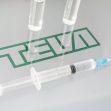On December 11th, the United States District Court for the Northern District of California denied motions to dismiss the False Claims Act lawsuit regarding pharmaceutical companies Allergan and Adamas.
Allergan and Adamas allegedly falsified data in order to obtain a series of patents for two medications: Namenda XR and Namzaric. Both Namenda XR and Namzaric are delayed-release drugs used to treat patients with Alzheimer's-related dementia.
The issuance of invalid patents has effectively created a monopoly, allowing the pharmaceutical companies to outcompete generic brands. In addition, the fraudulent patents also allowed the companies to overcharge state and federal governments under programs like Medicare and Medicaid. Court documents show that Allergan’s revenue for the two drugs was approximately $583.6 million in 2017, $685.1 million in 2016, and $770.5 million in 2015.
According to court documents, Adamas founder Dr. Gregory T. Went misrepresented data in order to receive approval by the United States Patent Office. In June of 2010, the initial patent application was rejected. In the subsequent application, Dr. Went declared that there was “no incidence” of certain side effects. This was proven to be false. Dr. Went continued to use this fraudulent data to apply for nine additional patents.
Allergan and Adamas asked the federal court to dismiss the FCA claims under the public disclosure bar found in 31 U.S.C. § 3730(e)(4). This statute prevents lawsuits against fraud that has already been disclosed publicly. The pharmaceutical companies both argued that since the claims were based on publicly disclosed documents filed on the Patent Office’s Patent Application Information Retrieval (“PAIR”) website, the FCA should be dismissed. In addition, both defendants argued that the relator should not qualify as an original source due to the inability to provide sufficient facts.
The relator responded that due to amendments to the FCA in 2010, information on the U.S. Patent Office’s website is not sufficient for a public disclosure bar. As part of the Patient Protection and Affordable Care Act (“ACA”), Congress amended the FCA to “empower whistleblowers to come forward to expose fraud, which is a crucial way to save the government money and ensure the health and well-being of Americans.”
The California Northern District Court has rejected the claims of Allergan and Adamas and has scheduled a case management conference for January 15, 2021.






